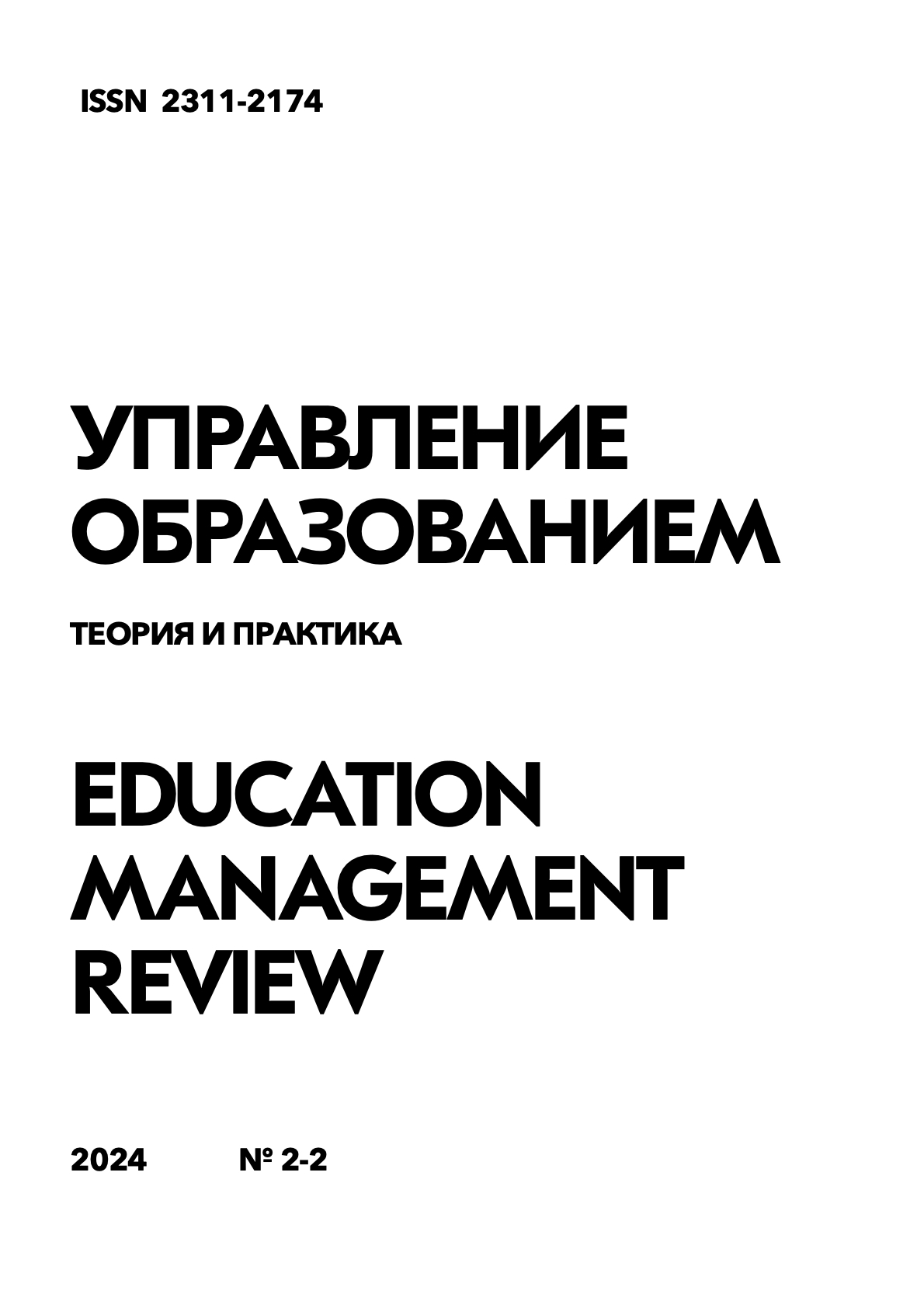Analysis of the impact of digitalization on the training of specialists in an oil and gas university
DOI:
https://doi.org/10.25726/t4445-0225-7161-vKeywords:
digitalization, oil and gas university, training of specialists, transformation of education, online education, digital technologiesAbstract
The process of digitalization, which is actively penetrating into all spheres of life, has a significant impact on the higher education system, including the training of specialists for the oil and gas industry. This study is devoted to the analysis of transformational changes in the educational environment of an oil and gas university due to the introduction of digital technologies. The methods of system analysis, comparative analysis, expert assessments, and statistical data processing were used in the work. The information base of the study consisted of regulatory documents regulating the process of digitalization of education, statistical data reflecting the dynamics of the introduction of digital technologies in oil and gas universities in Russia for the period from 2015 to 2022, the results of a survey of 150 teachers and 500 students from 5 leading oil and gas universities in the country. The conducted research made it possible to identify key areas of transformation of the educational process in an oil and gas university under the influence of digitalization: active implementation of online learning (the share of online courses increased from 5% in 2015 up to 30% in 2022), the use of virtual simulators and simulators for practical training (an increase in the number of hours with their use by 150% over the analyzed period), the integration of digital tools into traditional forms of education (82% of the surveyed teachers noted that they regularly use digital technologies in the classroom). At the same time, 67% of students believe that digitalization has a positive effect on the quality of their professional training. Problem areas were also identified: the insufficient level of digital competencies among some of the teaching staff (35% of respondents), the need to modernize the material and technical base of universities (75% of respondents). Recommendations for the further development of the digitalization process in oil and gas education are formulated.
References
Бахтизин Р.Н., Шемяков А.О., Керимов В.Ю., Мовсумзаде Э.М. Подготовка инженерных кадров в области гуманитарного моделирования // История и педагогика естествознания. 2017. № 1. С. 6-11.
Бехманн Г. Техногенные катастрофы: жизнь в обществе риска // Философские науки. 2011. № 8. С. 39-43.
Ирисметов А.И. Применение информационных технологий в повышении квалификации. Финансово-экономические аспекты развития агропромышленного и рыбохозяйственного комплексов Астраханской области в условиях цифровизации: мат. Международ. науч. конф., Астрахань, 10 декабря 2021 г. // Астраханский государственный технический университет. Астрахань: Изд-во АГТУ, 2022. С. 43- 46.
Ирисметов А.И., Осипов П.Н., Ирисметова И.И. Использование цифровых технологий в процессе повышения квалификации: мат. 6-й Междунар. науч.-прак. конф. «Высшее и профессиональное образование России в условиях цифровизации» // Казанский государственный архитектурно-строительный университет. Казань: Изд-во КГАСУ, 2022. С. 413-428.
Мовсумзаде Э.М., Пахомов С.И. Значение подразделения «Интенсификация образовательного процесса» в подготовке специалистов на современном этапе // История и педагогика естествознания. 2018. № 3. С. 24-26.
Мовсумзаде Э.М., Пахомов С.И. Создание и развитие гуманитаризации, математизации, информационно-цифровых и психолого-педагогических технологий в магистерской образовательной системе // История и педагогика естествознания. 2019. № 4. С. 11-17.
Мовсумзаде Э.М. Математизация, гуманитаризация, информационные технологии, педагогика и психология в многоступенчатом образовательном процессе // История и педагогика естествознания. 2017. № 3. С. 22-26.
Мовсумзаде Э.М., Валитова Н.Э., Тептерева Г.А. и др. Гуманитарная составляющая и ее значение в инженерном образовании // История и педагогика естествознания. 2022. № 2-3. С. 16-19.
Мовсумзаде Э.М. Ступени трансформации профессиональной образовательной системы и современные перспективы инженерного образования: моногр. Под ред. С.И. Пахомова. М.: «Обракадемнаука», 2021. 188 с.
Орешников И.М. Культурно-гуманистическая парадигма инженерно-технического образования // История и педагогика естествознания. 2015. № 4. С. 9-12.
Рыбин Е.Н., Амбарян С.К., Аносов В.В., Гальцев Д.В., Фахратов М.А. BIM-технологии // Известия вузов. Инвестиции. Строительство. Недвижимость. Технические науки. Строительство. 2019. № 9(1). С. 98-105.
Сулоева С.Б., Мартынатов В.С. Практика организации производства // Организатор производства. 2019. № 27(2). С. 27-36.
Федеральная Программа «Цифровая экономика Российской Федерации 2024», утвержденная Правительством Российской Федерации.
Шаммазов А.М., Бахтизин Р.Н., Мастобаев Б.Н., Мовсумзаде Э.М. История нефтегазового дела России. М.: Химия, 2001. 315 с.
Шмаль Г.И. Будущее новой энергетики – компетентные и высокопрофессиональные кадры // Энергетическая политика. 2017. № 5. С. 13-18.




